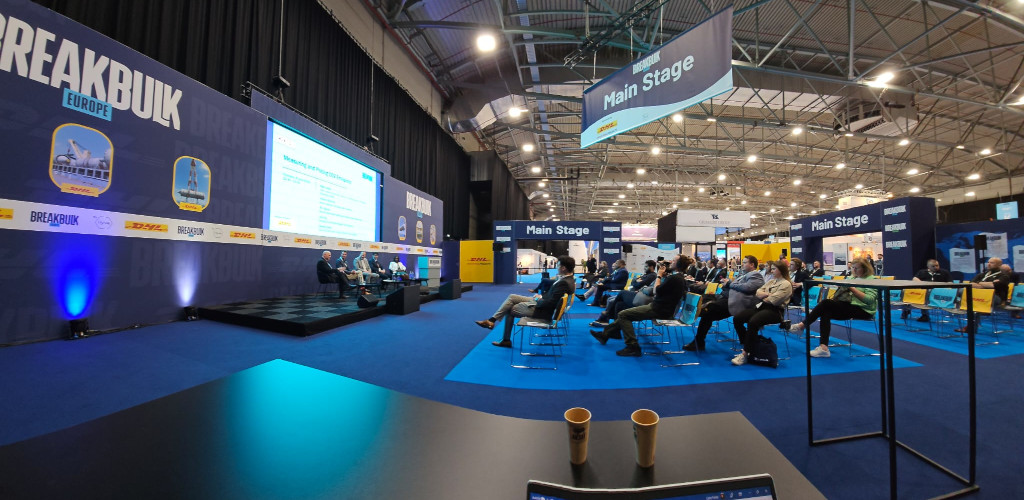Industry-initiated Project Aims to Standardise Emissions Calculations

By Carly Fields
Breakbulk Europe 2023: Having an accurate and audited carbon reduction plan is becoming a requirement of multipurpose vessel selection criteria, a panel in Rotterdam told attendees.
Speaking on the Measuring and Pricing C02 Emissions session, Joey Ng, strategy and investments manager at Swire Shipping, said that project cargo tenders are increasingly focused on carbon emissions, both on the calculation and mitigation sides.
Swire, he said, is trying to reduce emissions at source rather than offset and is committed to accurate carbon accounting. “The goal of this decarbonisation work is to move every bit of cargo with lower and lower emissions. We have got a lot of work done, but there is more work to do, and accuracy should be the core of this.”
Rik Arends, director of the Sustainable Freight Buyers Alliance at the Smart Freight Centre, or SFC, introduced an industry-initiated project looking to standardise emissions calculations for the MPV sector.
The executive spoke of the challenges of setting cross-sector comparable parameters. “As a breakbulk sector we think we are super unique and that every cargo is unique and that is absolutely true. At the same time, as a cargo owner, you want to make the right choice about how you track and reduce your emissions.”
SFC has been facilitating meetings of carriers, freight forwarders and consultants to establish a fair and equal methodology that everyone can buy into.
“This needs to be an industry-led initiative to track emissions consistently through the supply chain,” he said. It also needs to be consistent with existing frameworks, as well as practical. “It is better to be 70% right and practical than 100% right and impractical,” he said.
Dennis Devlin, head of growth in North America for Maersk Project Logistics, has been involved in the SFC project. He agreed that it needed to be fair and practical for all parties and spoke of a need to measure first, then price second.
“If there is a complex and esoteric new formula that's not backed by project forwarders, shippers or even for that matter breakbulk vessel owners and operators in today's market, how practical could it be?”
Vilasini Krishnan, senior consultant at 4D Supply Chain Consulting, said that this will have to be a group effort. However, people continue to work in silos, she said.
Summing up, moderator Nick Lurkin, senior adviser climate and environment at the Royal Association of Netherlands’ Shipowners, or KVNR, agreed that collaboration will be key in measuring emissions in the future.
Check out our post-session interview with Rik Arends:
Join the conversation at Breakbulk Americas 2023, happening on 26-28 September at the George R Brown Convention Centre in Houston, Texas.
